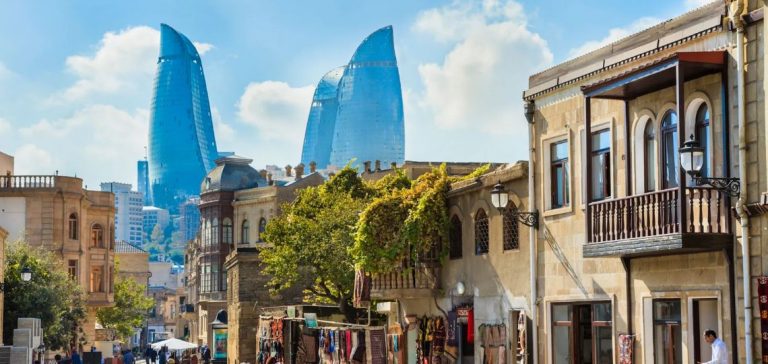Azerbaijan, as the president of COP29, succeeds the United Arab Emirates (presidency of COP28) and takes responsibility for turning the “Emirati Consensus“—a major climate agreement established at the previous conference in Dubai—into tangible actions. The goal is to continue the work of the Troika of presidencies formed with Brazil (president of the upcoming COP30) to ensure continuity and implementation of climate commitments. In Baku, negotiators will focus on establishing concrete mechanisms to ensure that Nationally Determined Contributions (NDCs) from member states align with the 1.5°C target by 2025.
Climate Finance: A Complex Roadmap
The main priority of this COP29 is to establish a Climate Finance Action Fund. This framework, negotiated across several conferences, aims to set precise goals for mobilizing capital for developing countries, which are often the most vulnerable to the impacts of climate change. The president of Azerbaijan, Ilham Aliyev, has already announced a plan to strengthen financing through the creation of this fund, designed to facilitate access to resources for decarbonization projects.
Negotiations will also address how major global financial institutions and private funds can be mobilized to bridge the financing gap. The ALTÉRRA initiative, introduced by the UAE during COP28, will serve as a foundation to expand private investments in emerging economies.
Energy Transition and Diversification
In parallel, the Azerbaijani presidency aims to promote the diversification of energy sources. The country, though rich in oil resources, is committed to increasing its renewable energy production capacity. The goal is to reach 30% renewable energy in the energy mix by 2030. This strategy includes developing offshore wind farms in the Caspian Sea, as well as large-scale solar projects to reduce dependence on fossil fuels and modernize the national energy sector.
Additionally, partnerships with international organizations such as the World Bank could catalyze additional investments to accelerate the energy transition. Azerbaijan seeks to demonstrate that even a major oil-producing country can adopt a proactive decarbonization policy while supporting its economic growth.
Multilateral Cooperation: The Troika in Action
The Troika of presidencies (United Arab Emirates, Azerbaijan, Brazil) plays a key role in maintaining the momentum initiated by the “Emirati Consensus.” The three countries coordinate their efforts to ensure coherence between conferences and reinforce the commitments made. This collaborative approach aims to provide a long-term vision, particularly by laying the groundwork for COP30 in Brazil, which will focus on reviewing the NDCs.
Technical meetings in Baku will also address the implementation of short-term objectives, such as financing resilience infrastructure, establishing transnational energy corridors, and enhancing transparency in monitoring mechanisms. The main challenge will be to ensure that commitments made by each state are translated into concrete, measurable actions.
Outlook for COP29
COP29 is a pivotal stage to strengthen climate finance mechanisms and structure a roadmap towards global carbon neutrality. Through this presidency, Azerbaijan seeks to illustrate the central role that transition economies can play in promoting global decarbonization. The outcomes of COP29 will directly influence the future trajectory of international negotiations and determine the credibility of commitments made under the Paris Agreement.





















